
Print by Chris Collins

D.W. Griffith and the Biograph Shorts
by Joe Carducci
There is a lot more to film history than even most film obsessives understand. For its short existence -- movies were still just ten minutes long a hundred years ago -- the industry jumped into existence, though firstly just to provide novelty shorts -- arcade loops less than a minute in length. These “actualities” were wearing out their welcome, used last in vaudeville programs to clear the house, when true story-telling began to grow out of these. The flood of storytelling cinema began at the turn of the century. Terry Ramsaye’s techno-cultural history of film was begun in 1920 for Photoplay magazine and published in book form in 1926 and even that early he called it A Million And One Nights.
 Ramsaye was able to interview most of the inventors and exhibitors from the days when it -- the art, the business, the scam -- crawled before it walked, ran, flew. It isn’t until page 453 that Ramsaye reaches Chapter 44, “Enter D. W. Griffith with Mss”, and that’s Griffith still an actor in 1907.
Ramsaye was able to interview most of the inventors and exhibitors from the days when it -- the art, the business, the scam -- crawled before it walked, ran, flew. It isn’t until page 453 that Ramsaye reaches Chapter 44, “Enter D. W. Griffith with Mss”, and that’s Griffith still an actor in 1907.The American Mutoscope Co. made a paper-based variant of the Edison Kinetoscope and they had the capital to invest in both film production and technical research. They hired W.K.L. Dickson when he left Edison in frustration over the quashing of his screen projection experiments. Thomas Edison did not believe in projection. He actually hadn’t believed in the silent film either; his intent had always been to sync the image with his phonograph and have what were referred to as “living pictures” with sound. But the silent hand-cranked Kinetoscope “peep-shows” took off before he could perfect the synchronization. Ramsaye quotes an Edison memo, “[I]f we make this screen machine that you are asking for, it will spoil everything. We are making these peep show machines and selling a lot of them at a good profit. If we put out a screen machine there will be a use for maybe about ten of them in the whole United States.”
American Mutoscope believed in projection because they listened to frustrated exhibitors -- the single-viewer peep show was inefficient in their minds. They imagined projecting the living pictures before the audience at a vaudeville theater. The early studios that survived to become the major movie studios were creatures of these early exhibitors and their advantage was their truer sense of what their own audiences responded to. Dickson put the motion picture up on a screen with Mutoscope’s backing. They changed their name to The American Mutoscope & Biograph Company.
This company from the beginning brought more imagination to bear on their early filmed subjects; The Edison company’s films were literal documents of stage performers or boxers -- they were inventors and scientists rather than artists. (The earliest Edison films are available on DVD and some are worth seeing.) Ramsaye credits James White and Edwin S. Porter with creating the first “story picture” with their subject, Life of an American Fireman (1903), “Mark this: it was the grand staple situation of dire peril, with relief on the way, the formula that has made Griffith famous, or that Griffith has made famous, as you choose to view it. It was and is yet the greatest screen situation, of unfailing power.”
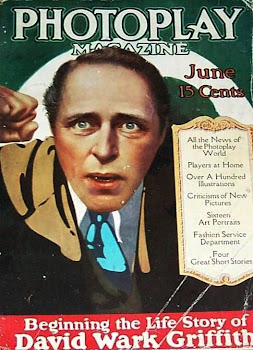 Griffith came into New York from a stage tour. He made five dollars for appearing in the Edwin S. Porter film, Rescued from an Eagles’ Nest (1908), but Porter was not interested in his subject ideas. The Biograph Studio was interested in Griffith’s writing and he acted there as well at first. Mack Sennett showed up in this period too and the imaginative edge Mutoscope had over Edison soon widened.
Griffith came into New York from a stage tour. He made five dollars for appearing in the Edwin S. Porter film, Rescued from an Eagles’ Nest (1908), but Porter was not interested in his subject ideas. The Biograph Studio was interested in Griffith’s writing and he acted there as well at first. Mack Sennett showed up in this period too and the imaginative edge Mutoscope had over Edison soon widened.D.W. Griffith began to make 1-to-2 reelers in 1908 and these films are well worth seeing. There are at least two different DVD collections of these mostly two reelers (14 to 20 minutes running time usually), and they are rentable from Netflix and available from Amazon and elsewhere. The Kino collection includes film historians with useful commentary. Its worth seeing the earliest and the best of these films again with the audio commentary up.
A program of Griffith shorts are playing Sunday at the University of Chicago DOC Films: D.W. Griffith at Biograph 1908-1913. The films: The Guerrilla (1908), The Country Doctor (1909), A Corner in Wheat (1909), As It Is in Life (1910), Man's Genesis (1912, 15m); The Musketeers of Pig Alley (1912), The Mothering Heart (1913).
There are so many other great two- and three-reelers made at Biograph by Griffith that DOC should have programmed two or three weekends of these before moving on to his better known feature-length films. He made almost five hundred films at Biograph, first in New York and New Jersey and after 1910 increasingly in California; he left when he got resistance to his planned longer films. The second Sunday of this program features his first feature, Judith of Bethulia (1913) which was his last for Biograph, running about one hour. Subsequent Sundays run Griffith’s more famous feature films, but these though well worth seeing can be wearying and reveal Griffith’s weaknesses as a writer. Looking over his filmography it seems clear to me that his best work is to be found among his two-reelers -- Musketeers, and Mothering Heart in this program, and, not on this program but on the DVDs: The Painted Lady (1912), The Unchanging Sea (1910), The Girl and Her Trust (1912), The Female of the Species (1912).
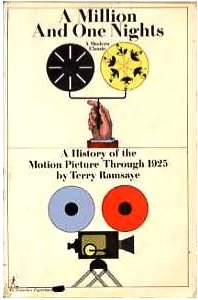 These short story analogues really work in the then new medium and soon people were filling movie theaters to see all-movie programs. The industry was no longer poaching on vaudeville, or game rooms. I’ve always thought movies since the fifties are too long. What people once expected was a couple short programs and programmer that might be 60-70 minutes in length and then the main feature that might run 90 minutes. When I went to repertory cinemas in the seventies and eighties the program was two feature films, often 90 to 110 minutes each. Almost nobody sits through a double feature anymore. But aside from twenties overshoots by Griffith and Von Stroheim and others where two to five hour films were turned in, the feature length was fairly short until fifties A-films got bigger and longer and wider to compete with television. It really didn’t work as a strategy because it's always about the mean storytelling ability of the industry as a whole that makes people go to films or stay home. Granted there is so much more at home to do that theatrical film exhibition will not boom again.
These short story analogues really work in the then new medium and soon people were filling movie theaters to see all-movie programs. The industry was no longer poaching on vaudeville, or game rooms. I’ve always thought movies since the fifties are too long. What people once expected was a couple short programs and programmer that might be 60-70 minutes in length and then the main feature that might run 90 minutes. When I went to repertory cinemas in the seventies and eighties the program was two feature films, often 90 to 110 minutes each. Almost nobody sits through a double feature anymore. But aside from twenties overshoots by Griffith and Von Stroheim and others where two to five hour films were turned in, the feature length was fairly short until fifties A-films got bigger and longer and wider to compete with television. It really didn’t work as a strategy because it's always about the mean storytelling ability of the industry as a whole that makes people go to films or stay home. Granted there is so much more at home to do that theatrical film exhibition will not boom again.I’ve been watching half-hour TV dramas from around 1960: "Lawman" (1958-62, ABC), "Have Gun - Will Travel" (1957-63, CBS), "The Rifleman" (1958-63, ABC) and "Wanted: Dead or Alive" (1958-1961, CBS). The Encore Western channel is commercial-free so they run 22 minutes long. Two-reelers with sound, and though most episodes are clumsy threadbare presentations, there are also routinely quite well done episodes that start from the pen of Clair Huffaker, Sam Peckinpah, Dean Reisner, and other writers who found they could do something in that amount of time. The half-hour drama disappeared from television in the sixties but this time it was no Griffith-like genius who needed more minutes; not quite. As with feature films, most television dramas are a good fifteen minutes too long even without commercials.
(Adapted from the forthcoming book, Stone Male - Requiem for a Film Style; photo: The Musketeers of Pig Alley)
Medicine Bow National Forest, Wyoming


Photos by Joe Carducci

Motacilla Flava, by James Fotopoulos
From the Desk of Joe Carducci…
Brooks Barnes in the NYT reports on the proposal to sell encrypted video-on-demand movie premiers as the are released to theaters, "In This War, Movie Studios Are Siding With Your Couch". This was the rabbit Carolco tried to pull out of the hat back when the maker of big action pictures was fighting to survive. Then cable-top boxes would’ve been insecure at best. The remaining movie distribution outlets for theatrical and DVD sales and rentals are fighting it but they hardly look fit to survive. Blockbuster just filed for bankruptcy protection last week. Theaters are important but this kind of premium V.O.D. delivery to the home can be an adjunct to the advertising event a movie opening provides. It won’t likely harm theaters because they are already surviving on teenage business and they specifically want to get out of the house.
The major record labels tried to keep the Tower Records chain in business with charity terms ten years ago. If this had been France or Japan Tower would still be rolling out mega-stores in smaller and smaller towns like Wal-Mart is (they just announced they are moving into Africa!), and there’d be no web commerce breathing down their neck thanks to Ma Bell. I probably believe that Paramount Pictures should have beaten the anti-trust rap in 1948 and kept their theaters and vertical integration as they called it. The studios sold their theaters and the chains got bigger, but not big enough to digitize projection or maintain large theaters. These issues just keep accelerating and get harder and harder to trace any principle through action and time, especially since 1948 when they decided as they did. Coming Soon to your living room wall, Facebook II - Money Never Sleeps.
***
Joe Nocera in the NYT, "When Did Gekko Get So Toothless?"
“One of the film’s many advisers is Olaf Rogge, a big-time London money manager, who presides over Rogge Global Partners, a firm with $45 billion in assets. Although he had not yet seen the movie when I called him recently, he had read the script in most of its iterations… Like Mr. Roubini, he has a bit part in the movie.
He had high expectations for the film, he said, and was disappointed by the script Mr. Stone ultimately used to make it. At one point during their eight hours of conversations, Mr. Rogge told Mr. Stone, ‘Leverage is the mother of all evils.’ Mr. Stone changed that line to ‘Speculation is the mother of all evils.’ When Mr. Rogge complained, Mr. Stone would tell him that ‘we are here to make a film, not to make history,’ Mr. Rogge said with a sigh.”
***
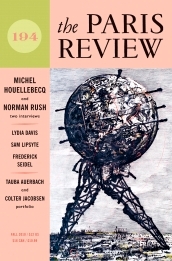 Michel Houellebecq interviewed by Susannah Hunnewell in The Paris Review, illustrated with a nice photograph of him with Iggy Pop who wrote several songs under the influence of Houellebecq’s latest novel.
Michel Houellebecq interviewed by Susannah Hunnewell in The Paris Review, illustrated with a nice photograph of him with Iggy Pop who wrote several songs under the influence of Houellebecq’s latest novel.“Several years later, his mother, who felt she had been unfairly presented in certain autobiographical passages of the novel [The Elementary Particles], published a four-hundred-page memoir. For the first and last time in his public life, Houellebecq received widespread sympathy from the French press, who were forced to concede that even the harsh portrait of the hippie mother in The Elementary Particles didn’t do justice to the self-involved character that emerged from her autobiography. During her book tour, she famously asked, ‘Who hasn’t called their son a sorry little prick?’”
***
Ilaria Sala in the WSJ, "In China, Musicians For the Modern Era".
“‘There is nothing Chinese in my music,’ says iLoop, 28, sitting in a Starbucks coffee shop here [Beijing], his hands kept busy by a lock of hair constantly falling on his forehead. ‘In any case, it would be difficult otherwise: Electronic music is urban, international; we all communicate online, across countries. And Chinese culture has been cut. Interrupted,’ he says. ‘There was the Cultural Revolution, right? So much has been destroyed that for my generation it is impossible to know what it was all about before. We do not have Chinese traditions anymore, all has been interrupted. In Japan it is different. Traditions are part of daily life. It shows in their sound too.…’
‘No, what I do is not political at all,’ he says, shaking his head, while admitting that maybe, just maybe, the lifestyle of an electronic musician could appear ‘political’—read ‘nonconformist.’ …But ask him who his favorite musicians are, and without hesitation he says: ‘ATR! Atari Teenage Riot. German band. Great stuff. The biggest influence on my sound.’ Log onto ATR's MySpace page, and your ears will be assaulted by a raw, angry sound, and lyrics that scream that ‘Deutschland Must Die’ and inveigh against ‘too much government control’—in Germany.”
***

***
Press release of the week:
The Bopst Show
With special guests Capoeira Resistencia & Khalima Dance
•Thursday September 30th 10PM Free
Balliceaux
203 N. Lombardy St.
Richmond, VA
“Spend a lackluster Thursday evening with a balding, middle-aged has been that never was spinning tunes on partially borrowed equipment in a sad & pathetic attempt of marginal entertainment value. The washed up AM music disc jockey, failed musician & abysmal show promoter plays music of limited commercial appeal and only got the gig because he himself books entertainment for the room. It will be like witnessing a slow moving train wreck as Bopst, the undeniable talentless hack that he is, feebly tries to con what little friends he has into coming out to hear him play other people’s music. The only redeeming factors of this evening will be special appearances by Capoeira Resistencia and Khalima Dance, but they only agreed to show up because Bopst begged and pleaded with them to do it telling them that he wouldn’t book any future appearances for the wondrous dance troupes if they didn’t strut their respective stuffs during his DJ night. As contemptible as that is, Bopst has spent an inordinate amount of time putting together an amateurish video of found clips he found on the internet interspersed with his laughable, um, “art” so that he can not only bore you with his musical selections, but with his sophomoric visual presentations as well.
Here's why you should come out:
And this is why we understand if you don't:
Prepare to be disappointed.”
***

Blackout comp, from Arthur.
***
Tom Chatfield in Prospect, "The Meaning of Mario".
“Twenty-five years ago to the day, the videogame ‘Super Mario Bros’ appeared. This epochal fact has been celebrated in some style already—the Guardian offers one fact for every year—happily ignoring the emergence of Mario himself as a character back in 1981. Why exactly is it, though, that the most influential and renowned fictional character of the last quarter century—arguably in any medium—is a plump Italian plumber known not for his wrench skills but for his inexhaustible, effort-free athleticism, and his unquenchable fondness for consuming fungi?”
***
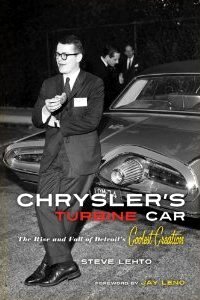 Patrick Cooke in the WSJ on Steve Lehto’s book, Chrysler’s Turbine Car.
Patrick Cooke in the WSJ on Steve Lehto’s book, Chrysler’s Turbine Car.“And, boy, did people love the car. Ghia's prototype design perfectly evoked the rocket vehicle of the future and the hopes of a nation headed to the moon. Just starting the engine must have made drivers feel a bit like astronauts going through a pre-launch sequence—turning on the ignition required eight separate steps. But once the turbine engine was running, it was capable of reaching an astounding 60,000 rpm, as opposed to a piston engine's 8,000 or 9,000. The turbine's normal operating temperature ran at 1,800 degrees Fahrenheit, 10 times the temperature of a piston-engine car of the time. In an interesting aside, Mr. Lehto says that the familiar whine of a turbine jet engine comes not from its fiery core but from gears driving accessories using the engine's power, a sound known as ‘gear singing.’”
***
Andre Glucksmann at signandsight.com, "Fear of Ourselves".
“The lifting of borders, the Europeanisation of nations, the globalisation of the continent, all this has propelled every one of us into a universe with no clear orientation and with no infallible norms. Remember Charles de Gaulle's diagnosis of 1965: ‘The general progress, has left a cloud hanging over the individual. The old serenity of nations of peasants certain of a mediocre but secure existence on the land, has been replaced in the children of the century with a stifling fear of the uprooted.’
The smiling face of rootlessness are the 300,000 French expats who line their pockets in the City of London when the stock market booms. And the tragic face are the travelling people who are chased from one wild campsite to the next, deprived de facto of their rights to travel and beg, as only Communism had tried to do using force. The Roma inspire fear. To hide the Roma is to hide our brothers in rootlessness, and they are an unavoidable and frightening part of our destiny. The fear of the Roma is an unacknowledged fear of ourselves.”
***
 Rupert Wilkinson in The Chronicle Review on David Riesman’s book The Lonely Crowd.
Rupert Wilkinson in The Chronicle Review on David Riesman’s book The Lonely Crowd.“The Lonely Crowd was part of a stream of writing on tendencies in American ‘social character’ that flourished between the 1940s and 1980s, peaking in the 50s and early 60s. It described a shift in the way Americans followed society's prescriptions, from a 19th-century ‘inner-direction’—behavior internalized at an early age from parents and other elders—to a mid-20th-century ‘other-direction,’ flexibly responsive to ‘peer groups’ and the media. Key metaphors were the ‘gyroscope’ of inner-direction versus the ‘radar’ of other-direction. (During World War II, Riesman had been a lawyer for Sperry Gyroscope, makers of gyroscopic bombsights.) Inner-direction provided moral stability in a rapidly developing society. Unlike ‘tradition-directed’ people, dependent on external rules in older, more static societies, inner-directed people could carry their precepts anywhere. But other-direction was more suited to a bureaucratic age of sales, services, and ‘human relations.’”
***
Paul Berman at slate.com Kwame Anthony Appiah’s book, The Honor Code.
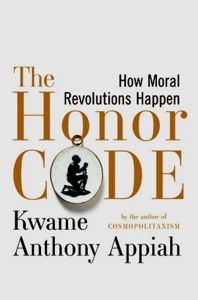
“Tradesmen and workers in England began to invoke ‘the honor of workingmen’ as an argument against tolerating slave labor. He notices that still another kind of honor—the ‘national honor’ of China, as seen in the eyes of other countries—played a role in the rhetoric of the anti-foot-binding campaign. Appiah figures that he is on to something. And in his enthusiasm over his discovery, he points to still another such revolution, or potential revolution, that is going on right now.
This is the campaign to condemn and reject the custom, prevalent among the Pashtun population of Pakistan and other groups, too, known as ‘honor killing’—the murdering of women by members of their own family in order to punish sexual or marital transgressions. Appiah observes that like the anti-dueling, anti-slavery, and anti-foot-binding reformers of the past, some of the campaigners against ‘honor killing’ in our own time have invoked new and improved notions of honor in opposition to the dreadful old practice—the notion, for instance, that violence against defenseless women cannot be regarded as honorable.”
The Honor Code book excerpt in the WSJ.
***
Greg Grandin in The Nation revisits the Rigoberta Menchú case at length in
"It Was Heaven That They Burned". At length but not thoroughly. It’s the Age of Leverage so he’s leveraging the remaining Nation readership’s need for Alternative History to leave out of the bloody narrative of Guatemalan history the guerrillas contribution -- for all we know they were in the mountains camping and fishing breathing fresh air doing squats together and treating peasant women with respect, all those good things unnecessary to mention. And with the end of Communism the left prefers to forget all those theories of The-How-of Revolution by Lenin, Mao, Ho, Fanon etc. Those all seem too cold-blooded to survive the TV lights of postmodern humanism. Nobody baits a regime to crack down and radicalize the bystander peasantry and workers anymore. They claim to not even remember the theory.
***
Dinesh D’Souza in Forbes, How Obama Thinks.
“According to Obama, his dream is his father's dream. Notice that his title is not Dreams of My Father but rather Dreams from My Father. Obama isn't writing about his father's dreams; he is writing about the dreams he received from his father.
So who was Barack Obama Sr.? He was a Luo tribesman who grew up in Kenya and studied at Harvard. He was a polygamist who had, over the course of his lifetime, four wives and eight children. One of his sons, Mark Obama, has accused him of abuse and wife-beating. He was also a regular drunk driver who got into numerous accidents, killing a man in one and causing his own legs to be amputated due to injury in another. In 1982 he got drunk at a bar in Nairobi and drove into a tree, killing himself.
An odd choice, certainly, as an inspirational hero. But to his son, the elder Obama represented a great and noble cause, the cause of anticolonialism. Obama Sr. grew up during Africa's struggle to be free of European rule, and he was one of the early generation of Africans chosen to study in America and then to shape his country's future.
I know a great deal about anticolonialism, because I am a native of Mumbai, India.”
Tim Arango in the NYT assures us this article triggered media soul searching. They won’t find one, certainly not at the NYT where columnists have popularized this sort of “reading” of motivations whether there’s a book to “read” or not.
***
 Edward Kosner in the WSJ on Mark Feldstein’s book, Poisoning the Press - Richard Nixon, Jack Anderson, and the Rise of Washington’s Scandal Culture.
Edward Kosner in the WSJ on Mark Feldstein’s book, Poisoning the Press - Richard Nixon, Jack Anderson, and the Rise of Washington’s Scandal Culture.***
Mallary Tenore at poynter.org in her piece, "How Slate’s Jack Shafer Calls Out Bogus Trend Stories", runs interference for the Times on such stories by suggesting Shafer picks on them before quoting him, "I'm not sure if that's because The New York Times runs more of them or because we scrutinize them more. Why it seems to be heavily represented in my column may be because I read the Times closely and so do other readers, or it could mean that there are screws loose at the paper."
My sense of this sort of writing that Shafer is right to call “bogus trend stories” is that smallish offenses of the newsmedia generally are made worse by the pretension at the NYT and their sense of themselves as a politicultural player. This leads them to lose the disinterested approach that is required to represent accurately what’s going on. Instead they relish the networks, newsweeklies, cable-news channels, and other newspapers taking their cues from the NYT. They seek to bell the cat on every new development -- naming it, shaping the subject or person as it or they first appear in the news. This person gets a White hat to wear, this one a Black hat; Manhattan really is not very sophisticated. This game is ending as so many are these years. Today if the NYT successfully bells the cat it’s more likely to register via NPR, “Saturday Night Live”, or The Comedy Channel.
***
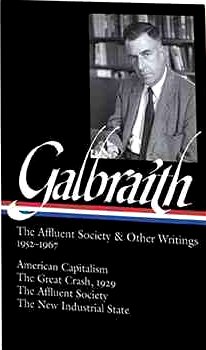 James Grant in the WSJ on John Galbraith’s book The Affluent Society.
James Grant in the WSJ on John Galbraith’s book The Affluent Society.“Half a century ago, the ‘conventional wisdom,’ in Galbraith's familiar phrase, was statism. In ‘American Capitalism,’ the professor heaped scorn on the CEOs and Chamber of Commerce presidents and Republican statesmen who protested against federal regimentation. ‘In the United States at this time,’ noted the critic Lionel Trilling in 1950, ‘liberalism is not only the dominant but even the sole intellectual tradition.’ William F. Buckley's upstart conservative magazine, National Review, made its debut in 1955 with the now-famous opening line that it ‘stands athwart history, yelling Stop.’ Galbraith seemed not to have noticed that history and he were arm in arm. His was the conventional wisdom.”
***
Nick Cohen reviews Tony Blair’s book.
“The Stop the War Coalition had promised a demonstration. For good measure members of the neo-Nazi British National Party had promised to come along for a protest of their own. If a previous Stop the War fracas at a Blair book signing in Dublin was a guide, it would have turned nasty. The alliance of white far-leftists and Islamist clerical fascists, who had come together in an echo of the Hitler-Stalin pact, was delighted. Blair was becoming ‘a pariah the world over’, it crowed. He ‘cannot go anywhere near the general public without there being protests and attempts to make a citizen’s arrest’.
To have believers in the one-party Marxist state, the one-religion Islamist caliphate and the one-race ethnically cleansed nation as your enemies is a badge of honour any politician should be proud to wear. Unfortunately for Blair, his enemies are not confined to the thuggish fringe. The mainstream repeats the conspiracy theories of the fascists and the Trotskyists so faithfully it is hard to tell who is following whom; whether the extremists’ ideas have taken over the mainstream or whether the extreme is an exaggerated image of the furies of the liberal centre, like a disfigured reflection in a fairground mirror. With the left and right-wing newspapers, as with the far-left and far-right parties, differences between supposed political opposites have broken down.”
***
Mats Persson at euobserver.com in "A lunch as bitter as bile", translates and summarizes a recent EU shouting match, this between Sarkozy and Barroso over the Roma/Gypsies policy.
***
Rufus Phillips in the WSJ probably didn’t not write his own headline, "Curb Corruption or Lose the War", but he makes a good point as he one-ups the CIA for its dependence on paid agents. “There is an alternative to relying on political information from mercenaries,” Phillips insists as he recounts Vietnam-era intelligence issues. “My earlier mentor, the legendary intelligence officer and political adviser Col. Edward G. Lansdale, had stressed influencing locals to work for their own country's best interests, not for us. This flew in the face of standard CIA intelligence tradecraft, then and now, which tends to focus on recruiting as many paid agents as possible.” While Phillips mentions then-President of South Vietnam Ngo Dinh Diem in his example, fudges his point until the meaning is not clear. He found out from friends who was attacking the Buddhists just how many minutes before the CIA found out from its paid assets? The truth may be that Karzai is, as Diem was, one of those rough-and-ready patriots. Diem and his natural national successors might well have reached the same goal South Korea’s imperfect leaders did -- a modern democratic state. Karzai and his successors might too given a chance. Phillips is right to insist American actions not work at cross purposes, but that isn’t quite the reason Diem’s name comes up so seldom, while with every anti-Karzai leak I think immediately of Diem and Kennedy’s big blink.
***
Ross Douthat in the NYT, "The Seduction of the Tea Partiers".
“But to the extent that the movement boasts a single animating idea, it’s the conviction that the Republicans as much as the Democrats have been an accessory to the growth of spending and deficits, and that the Republican establishment needs to be punished for straying from fiscal rectitude.
The Tea Partiers have a point. Officially, the Republican Party stands for low taxes and limited government. But save during the gridlocked 1990s, Republican majorities and Republican presidents have tended to pass tax cuts while putting off spending cuts till a tomorrow that never comes.
Conservatives have justified this failure with two incompatible theories. One is the ‘starve the beast’ conceit, which holds that cutting taxes will force government spending downward. The other is the happy idea that tax cuts actually increase government revenue, making deficit anxieties irrelevant. The real world hasn’t been kind to either notion.”
***

Part of China’s game of chicken with Japan over the fate of their fisherman was the aggressive purchase of Japanese Yen-bonds which strengthened Japan’s currency enough to threaten their exports. This on top of China’s refusal to let its own currency float to a market level, something the U.S. and Europe have been pushing. A truer valuation of the Chinese Yuan would also relieve pressure on third world economies so this issue is much bigger than the rote decade-long complaint from Washington. Japan responded by weakening its currency and releasing the ship’s captain.
Richard Barley writes in his Heard on the Street column in the WSJ,
“Beggar-thy-neighbor currency devaluations proved ruinous for the global economy in the 1930s. Is the world setting off down the same slippery slope again? Japan's decision to intervene in the currency market to drive down the value of the yen blew a hole in the developed world's united effort to persuade China and other Asian countries to stop artificially holding down their currencies.”
Jonathan Wheatley in the FT reports on Brazil’s finance minister Guido Mantega’s warning, “We’re in the midst of an international currency war, a general weakening of currency…” Wheatley notes, “The US dollar has fallen by about 25 per cent against the [Brazilian] real since the beginning of last year, making the real the strongest performing currency in the world...”
But according to Martin Wolf in the FT [Premier] Wen is right to worry about China’s growth:
“The characteristic of Chinese growth is that it is ‘unbalanced’, as Mr Wen notes: it is highly dependent on investment as a source of demand and driver of supply. It is, in a sense, the most ‘capitalist’ economy ever. Thus, between 1997 and 2009, gross investment rose from 32 per cent to 46 per cent of GDP, while household consumption fell from 45 per cent of GDP to a mere 36 per cent. This must be the lowest share of consumption in any significant economy ever. In a country with hundreds of millions of poor people, it is even shocking.”
So perhaps China is worried rather than cocky in its recent push at Japan. Any less Chinese exports might tell in domestic unrest in an economy designed to do not much besides export. The Senkaku dispute underlying the fishing boat drama might then be designed to steer street demonstrations against Japan for ever-ready and innumerable historical reasons.
In other currency news, Mercopress.com reports on Der Spiegel’s report on the Deutsche-mark deal for reunification. Sounds like Mitterrand was angling to lay a secure groundwork for World War IV.
Their handiwork, the Euro almost disappeared overnight recently after which what might have happened? Deutsche-mark Uber Alles? Marcus Walker, Charles Forelle, and Brian Blackstone in the WSJ pieced together that story, "On the Secret Committee to Save The Euro, a Dangerous Divide" :
“When Mr. Sarkozy barreled into one meeting with camera crews and photographers in tow, Ms. Merkel icily ordered the cameras out: ‘I won't let you do this to me,’ she said, warning she wouldn't play the part of ‘the stubborn old bag.’ …A gap quickly opened up between Germany, attached to euro-zone rules it viewed as banning bailouts for profligate countries, and France, which wanted greater freedom for national governments to support each other as they saw fit.
A fault line also developed over whether EU institutions should run any bailout operation. The European Commission, the union's executive branch, pushed for a central role in raising and lending funds—and found an ally in France. Germany, wary of a power grab, was deeply reluctant to put its cash in Brussels' hands.”
The backstop of all this is that gold is getting expensive because the paper one must use to purchase it is not backed by said precious metal, no, it’s backed by nothing less than the full faith and credit of the United States government. Oh...
Given the U.S. government’s proclivities the expectation is that it will take the easy way out of the debt crisis and inflate its way out, paying an old-dollar’s worth of debt with a new-dollar’s dime’s worth. This is the plan unless the Tea Party can tame a victorious Republican Party looking to get back into the old game. The free market/hard currency advocates are an analogue to both Parties but have hardly even been humored by past regimes in Republican congresses or White Houses. They believe a further transcendent hazard is introduced when the government intervenes to evade pain after earlier interventions (interest rates, Fannie Mae, borrowing for Iraq) inflate a bubble.
There was concern in Washington that China would stop buying US Treasury bonds, but the pain freaks on the right (and left) fear they’ll keep buying them, thus further empowering our game players at the Fed and Treasury and in the various parties that wish to party on. Paul Volcker was once a pain freak the last time things were really out of whack and his tough-love worked. Bloomberg reports that the Fed is “‘prepared to provide additional accommodation if needed to support the economic recovery and to return inflation, over time, to levels consistent with its mandate.’ Volcker didn’t comment on the appropriateness of the Fed’s stance. When asked whether the central bank should purchase longer-term Treasuries, Volcker said, ‘ordinarily we wouldn’t want to rely on that too heavily but under existing conditions I think it’s understandable… Given present conditions I have no feeling this violates some Federal Reserve doctrine or ethic or whatever,’ he said.”
That’s right, “Whatever!” That part I understood.
***
Aristos Doxiadis at opendemocracy.net, "The real Greek economy: owners, rentiers and opportunists".
“Before our own debt crisis erupted, public discourse was not very different from that in western countries. We would discuss the merits of public vs private, of boosting demand vs cutting expenditure, of liberalism vs social democracy. A few observers did insist on Greek specificities. For example, on how the public sector is not public when it has been captured by private and by ‘syntechnic' interests [there is no English equivalent for the Greek word ‘syntechnia’ in its current usage; it means ‘trade union’, but in the particular sense of defending the common privileges of a certain narrow occupational group, rather than class interests – like guilds used to do in medieval cities]. Or, how the private sector is not private when it lives off the public purse. But these voices were not present in the discourse of political parties and of talking heads, nor did they influence government policy.”
***
John Gray in The New Statesman on Frank Dikotter’s book,
Mao’s Great Famine.
“Limiting himself to describing and analysing the famine, he devotes only a few lines to what may be one of its eeriest aspects: that it provoked so little reaction in the west. It is not that the fact of the famine was unknown. Reports surfaced repeatedly, only to be discounted by a host of prominent visitors. As Jasper Becker recounts in Hungry Ghosts: China's Secret Famine (1996), a pioneering study cited by Dikötter, Mitterrand was by no means the only western dignitary who heaped praise on Mao's China as a society where chronic hunger no longer existed. There were also the Argentinian revolutionary Che Guevara, the Swedish sociologist Gunnar Myrdal, the art critic and self-styled anarchist Sir Herbert Read, the distinguished Cambridge Sinologist Joseph Needham, the American liberal economist J K Galbraith and Graham Greene's cousin Felix, a some-time New Age guru who was a shameless apologist for the regime, along with many others.
Not everyone joined in the chorus of denial. Testimony from refugees was accepted by a number of western opinion-formers, including Bertrand Russell, while the Guardian and the New Statesman urged the US to send food aid. The Red Cross offered help, which Beijing refused because the organisation had had the temerity to inquire about conditions in Tibet.”
***
Dan Alexe at euobserver.com, "National Amnesia".
“Only half of the Romanian population consider Nicolae Ceausescu's Communist regime to have been repressive, according to a new national survey. The other half thinks that life was better in Communist times or has no opinion.”
***
Thanks to Steve Beeho.
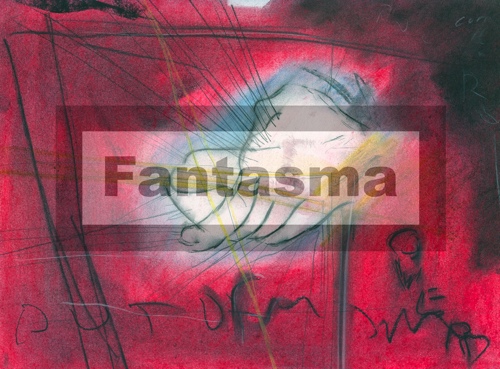
To receive a weekly update notice for the NV, send an email to newvulgate[at]sbcglobal.net with SUBSCRIBE in the subject line. To stop receiving notices, do the same with the word UNSUBSCRIBE.
• The New Vulgate
• Joe Carducci, Chris Collins, James Fotopoulos, Mike Vann Gray, David Lightbourne
• Copyright retained by the writer, artist, or photographer
No comments:
Post a Comment